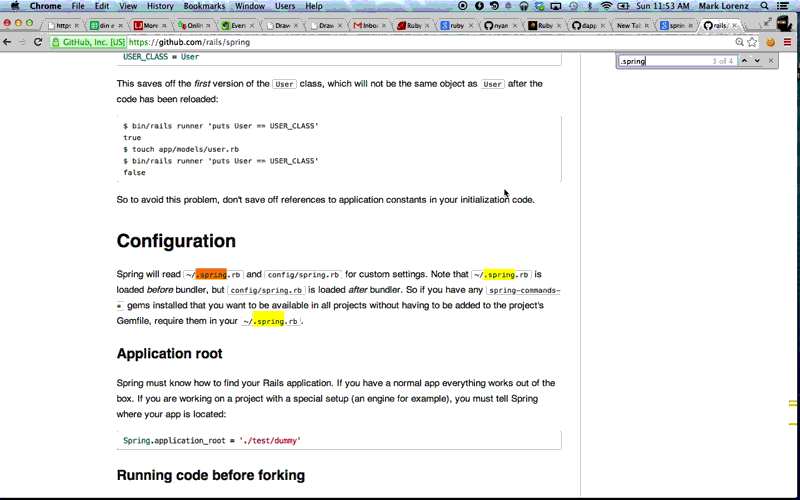
Security News
Research
Data Theft Repackaged: A Case Study in Malicious Wrapper Packages on npm
The Socket Research Team breaks down a malicious wrapper package that uses obfuscation to harvest credentials and exfiltrate sensitive data.
Allow rspec to output in a format that VIM's quickfix understands:
app/controllers/people_controller.rb:5: GET /peopleworks! (now write some real specs): Could not find table 'people'
I recommend that you install this as a global gem, since choice of editor is a personal preference.
$ gem install rspec_vim_formatter
Simple Usage
bundle exec rspec --format RspecVimFormatter --out quickfix.out --format progress
Like a Baus
" ~/.vimrc
" install thoughtbot's `vim-rspec`
Bundle 'thoughtbot/vim-rspec'
" vim-rspec mappings
nnoremap <Leader>t :call RunCurrentSpecFile()<CR>
nnoremap <Leader>specn :call RunNearestSpec()<CR>
nnoremap <Leader>spec :call RunLastSpec()<CR>
nnoremap <Leader>a :call RunAllSpecs()<CR>
" <leader>k to open the spec output in quickfix
map <leader>k :cg quickfix.out \| cw<cr>
" dump the spec running command into a fifo
let rspec_command = "bundle exec rspec {spec}"
let rspec_options = " --format RspecVimFormatter --out quickfix.out --format progress"
let g:rspec_command = "echom system('echo \"" . rspec_command . rspec_options . "\" >> ~/.wrench')"
# run the commands from the fifo in a loop
mkfifo ~/.wrench
while true; do cmd=`cat ~/.wrench`; clear; date +%s; echo "$cmd"; sh -c "$cmd"; done
Now you can <leader>t, to run the current spec asynchronously, and <leader>k to quickly jump to the failure!

git checkout -b my-new-feature)git commit -am 'Add some feature')git push origin my-new-feature)FAQs
Unknown package
We found that rspec_vim_formatter demonstrated a not healthy version release cadence and project activity because the last version was released a year ago. It has 1 open source maintainer collaborating on the project.
Did you know?

Socket for GitHub automatically highlights issues in each pull request and monitors the health of all your open source dependencies. Discover the contents of your packages and block harmful activity before you install or update your dependencies.

Security News
Research
The Socket Research Team breaks down a malicious wrapper package that uses obfuscation to harvest credentials and exfiltrate sensitive data.

Research
Security News
Attackers used a malicious npm package typosquatting a popular ESLint plugin to steal sensitive data, execute commands, and exploit developer systems.

Security News
The Ultralytics' PyPI Package was compromised four times in one weekend through GitHub Actions cache poisoning and failure to rotate previously compromised API tokens.